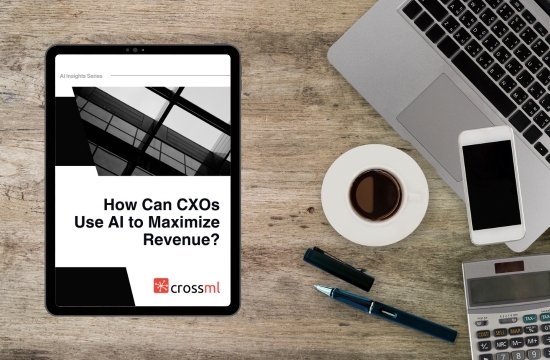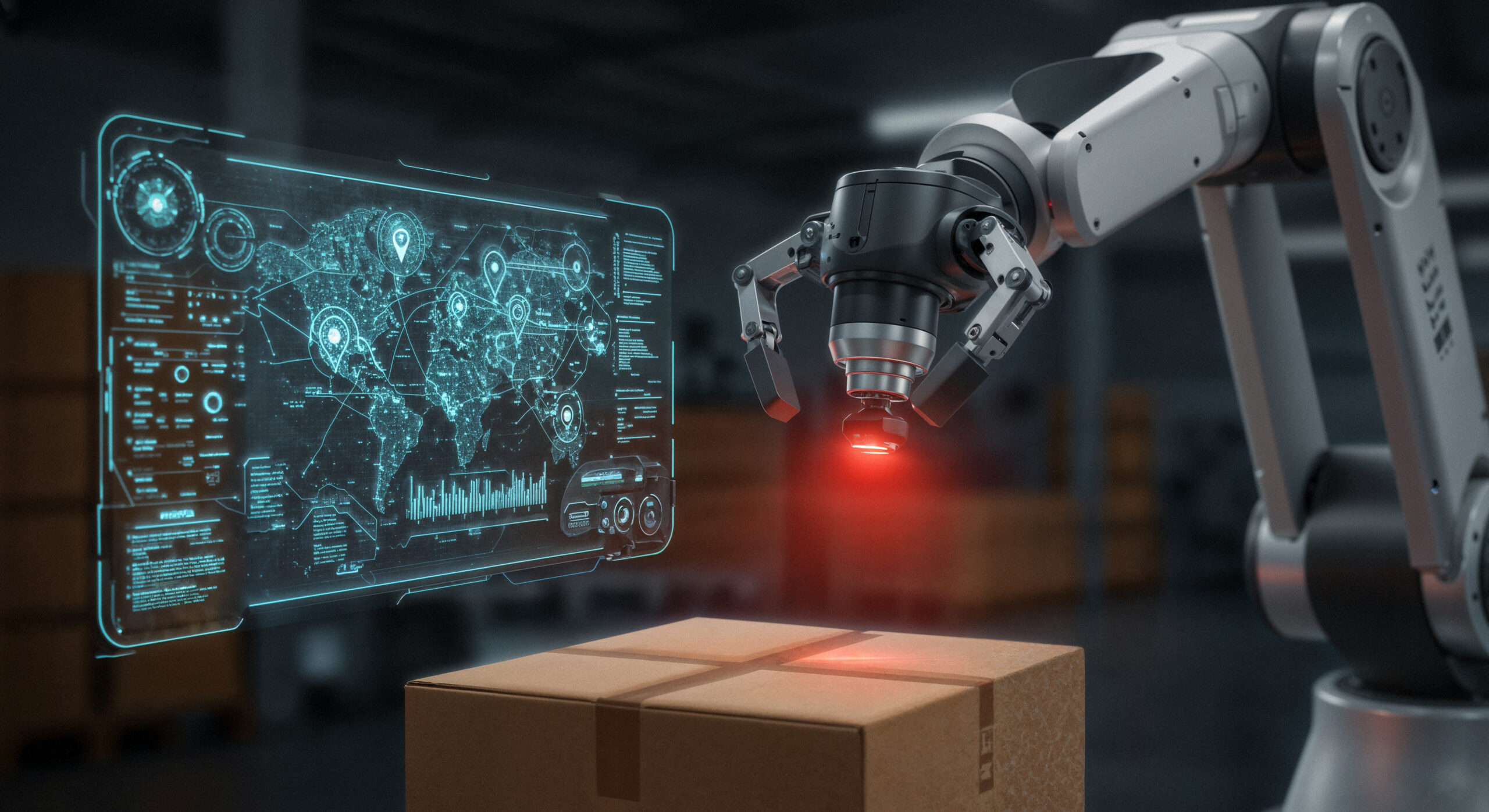Introduction
- Deloitte’s research highlights that companies adopting intelligent automation are forecasting a 15% boost in revenue within specific business units and an average 24% drop in expenses over a three-year span.
- According to a report shared by Automation Anywhere, 78% of enterprises have already rolled out Robotic Process Automation, while another 16% plan to introduce it within the next three years.
- PwC’s internal AI automation strategy helped the firm reclaim more than 5 million work hours and slash operational costs by 16% through a broad-scale implementation.
- Gartner projects that by 2028, generative AI tools will carry out 60% of tasks in B2B sales roles – an enormous jump from the sub-5% adoption seen back in 2023.
- With roughly 223 million subscribers, Netflix attributes nearly 80% of its viewing activity to its AI-based recommendation engine.
What makes someone click “Buy Now” or binge a new series all night? Behind every smart suggestion is a silent battle – AI vs Manual Recommendations. And for modern tech leaders, the choice is not just about tools but about business growth, speed, and scale.
Manual suggestions rely on human intuition and experience. But as customers expect instant, personalized results, more companies are turning to AI-powered recommendations, machine learning engines, and automated product suggestions that learn and adapt in real time.
This blog breaks it all down through real examples, current trends, and hands-on tips for decision-makers like CTOs, VPs of Engineering, AI/ML Leads, and Founders. From AI content recommendations to deep AI-driven customer insights, we will show you how to build a recommendation strategy that is not only smart but also scalable.
AI vs Manual Recommendations: The Smart Choice for Modern Businesses
Find out why businesses are switching from human-led suggestions to AI-powered recommendations for faster, smarter, and more scalable decisions.
- Human Recommendations: Personal, But Hard to Scale
Manual suggestions still matter – but are they enough for growing digital businesses?
Manual recommendations are built on human experience. A sales rep or support agent listens, understands the customer, and gives advice based on product knowledge. This works well when selling high-ticket items or during in-depth conversations. People want that personal connection, and humans can pick up on emotional cues AI may miss.
But here is the problem: as your business grows, manual suggestions can not keep up. They take time, depend on each person’s memory and mood, and can not process thousands of customer interactions at once. It becomes inconsistent, slow, and impossible to manage at scale. That is where the AI vs Manual Recommendations debate really begins, because what worked for 10 customers would not work for 10,000.
- AI Recommendation Systems: Personalization That Scales
From smart suggestions to deep customer insights – AI delivers more than speed.
An AI recommendation system does not rely on guesswork. It uses machine learning recommendations to study customer behavior, such as what they clicked, searched, bought, or skipped. Over time, this system learns and improves, offering AI-powered recommendations that feel personal but are based on real data, not human memory.
These systems use tools like AI personalization engines, smart recommendation engines, and AI content recommendations to match each customer with the right product or service. Whether it is suggesting the next show to watch or the right add-on during checkout, automated product recommendations make it easier for customers to choose – without needing a human to step in.
According to Research and Markets, the AI recommendation system market is set to grow from $2.44 billion in 2025 to $3.62 billion by 2029. That is a clear sign that more companies are betting on AI to do the job better, faster, and cheaper.
- Why the Shift Is Inevitable
AI is no longer a backup plan – it is the first step for future-ready teams.
The reason AI is winning in the AI vs Manual Recommendations conversation is simple: it works at scale. It can handle thousands of users at the same time, across different platforms, and still deliver personalized suggestions in real time.
With AI-driven customer insights, companies do not just recommend products, but they understand customer journeys better. This helps improve sales, reduce returns, and even build stronger loyalty. And unlike manual systems, AI never gets tired, never forgets, and keeps learning with every interaction.
As customer expectations rise, businesses need to keep up. AI alternatives to manual suggestions are not just helpful, infact, they are essential. CTOs, CEOs, VPs of Engineering, and AI leaders are realizing that if they want their teams to stay competitive, the answer lies in intelligent, automated decision-making.
Download the handbook
How CXOs Can Use AI to Maximize Revenue?
By clicking the “Continue” button, you are agreeing to the CrossML Terms of Use and Privacy Policy.

How AI-Powered Recommendations Are Transforming Industries
From retail to healthcare, AI recommendation systems are helping businesses improve customer experiences, increase sales, and scale faster than ever before.
- Retail: Turning Browsers into Buyers
In the retail world, customers expect personalized service, just like in a physical store. But doing that online, at scale, is not easy with manual methods. This is where intelligent AI recommendation engines step in to offer a smarter solution.
By 2025, nearly 80% of all retail interactions will be influenced by AI-powered recommendations.
Retailers are using automated product recommendations and smart recommendation engines to suggest items based on what customers have viewed, liked, or added to their cart. These systems improve customer journeys, raise the average order value, and build loyalty by offering the right products at the right time. It is a clear win in the debate of AI vs Manual Recommendations, especially as stores grow digitally and serve larger audiences.
- E-Commerce: Driving Engagement and Revenue
E-commerce platforms have embraced AI personalization engines to do more than just sell as they aim to engage. These platforms use machine learning recommendations to understand each customer’s behavior and adjust suggestions in real-time. Whether it is upselling accessories or cross-selling related items, AI-powered recommendations turn casual browsers into frequent shoppers.
The AI alternative to manual suggestions is also helping reduce cart abandonment. When shoppers feel that their preferences are recognized, they’re much more inclined to make a purchase. For decision-makers in tech and product teams, this shift is about more than convenience, it is about building smarter, faster sales engines that do not depend on human input.
- Beyond Retail: AI in Healthcare, Finance, and Education
It is not just shopping that benefits from AI-driven customer insights. In healthcare, AI recommendation systems are helping doctors suggest treatments or care plans based on patient history and similar case data. In finance, banks and fintech platforms are using AI content recommendations to offer the right insurance, loan, or savings product tailored to each customer’s profile.
Education platforms are also using AI personalization engines to build custom learning paths. Instead of a one-size-fits-all course, learners get content that suits their pace and goals. These shifts prove that AI vs Manual Recommendations is not just a tech debate but a practical choice with real business value across industries.
- The Future: Real-Time, Smarter, and Always Learning
Looking ahead, AI recommendation systems are becoming more advanced. New features include real-time feedback loops, adaptive models that learn from each click, and smarter suggestions that improve with every user session. These tools offer unmatched personalization at scale – something manual systems can not match.
For CTOs, VPEs, and AI/ML leaders, this means it is time to explore AI not as a replacement, but as an enabler. Choosing between AI vs Manual Recommendations is not about removing people but about using smarter systems to support growth, speed, and personalization in every part of your business.
CrossML: Empowering Smarter Recommendations for Your Business
Discover how CrossML helps you move beyond manual suggestions with powerful, scalable AI recommendation systems designed for real business impact.
Why CrossML Stands Out in the World of AI Recommendations
|
Custom solutions, real results, and a clear edge in the AI vs Manual Recommendations debate. |
CrossML is not just another tech provider. What makes CrossML different is its ability to build AI-powered recommendation systems that match your business goals, customer behavior, and industry requirements. Instead of offering one-size-fits-all tools, CrossML focuses on creating solutions that fit your exact needs – whether you are in retail, e-commerce, finance, or media.
In the ongoing discussion around AI vs Manual Recommendations, CrossML brings clarity and results. Manual suggestions may work for small teams or niche markets, but when it comes to scale, speed, and personalization, CrossML’s smart recommendation engines offer a powerful AI alternative that delivers real growth.
What CrossML’s AI Recommendation System Offers
|
Smarter suggestions, happier users, and better business decisions – automatically. |
CrossML’s systems are designed with performance and personalization in mind. Here is how businesses benefit:
- Personalized Experiences: With a powerful AI personalization engine, customers receive automated product recommendations based on what they browse, buy, or interact with. It is like giving each customer their own digital assistant.
- More Sales and Better Conversions: Data-driven suggestions help users find what they need faster, leading to higher purchase rates and bigger cart sizes. This is where AI-powered recommendations through smart sales assistants clearly outshine manual efforts.
- Faster Content Discovery: Whether you are a streaming platform or an online store, users quickly discover what they love with AI content recommendations – boosting engagement and retention.
- Clear Customer Insights: CrossML delivers deep AI-driven customer insights, helping leaders understand what drives behavior, what customers like, and how to plan better.
- Easy Integration: CrossML’s tools plug right into your existing tech stack with minimal disruption. Whether you are using a CRM, e-commerce platform, or marketing automation tool, the AI recommendation system fits right in.
From Idea to Impact: CrossML’s Full-Service Approach
|
Strategy, build, and scale – with expert guidance at every step. |
At CrossML, it is not just about deploying a tool. The journey starts with a detailed consultation to understand your goals, customers, and data. From there, CrossML’s team builds a machine learning recommendation system tailored to your use case. But it does not stop at launch – ongoing testing, training, and optimization are part of the package.
This full-service approach ensures long-term value. For decision-makers like CTOs, VPEs, Heads of AI, and Engineering Directors, this means more confidence in every recommendation the system makes. No more guesswork. No more manual overhead. Just a smart, scalable engine that learns and improves over time.
Conclusion
The right blend of technology and human insight can change how businesses connect with customers.
Manual recommendations bring a human touch, but they struggle when it comes to speed, scale, and data accuracy. In the debate of AI vs Manual Recommendations, it is clear that AI wins when businesses need to grow fast and serve many customers at once. With tools like AI recommendation systems, machine learning recommendations, and AI personalization engines, companies can offer more relevant, timely, and engaging suggestions, that too automatically.
The smart move is not to replace people but to free them up. Let AI-powered recommendations handle the bulk of personalization, while your team focuses on high-impact customer needs.
That is where CrossML Pvt Ltd helps. With deep expertise in smart recommendation engines and AI-driven customer insights, CrossML builds tailored systems that boost engagement and drive real results. If you are ready to explore the AI alternative to manual suggestions, CrossML is your ideal partner.
FAQs
Top AI alternatives include AI recommendation systems, machine learning models, and AI personalization engines. These tools automate suggestions based on user behavior, delivering faster and more accurate recommendations than traditional manual methods.
AI improves recommendations by analyzing large data sets in real time. It offers consistency, speed, and deeper personalization, making AI-powered recommendations more accurate and scalable than manual efforts, which often rely on guesswork and limited data.
AI helps you scale, reduce errors, and deliver personalized experiences faster. Compared to manual suggestions, AI recommendation systems save time, improve customer satisfaction, and drive better sales and engagement across digital platforms.
Yes, AI can manage personalization at scale with greater precision. While humans are useful for complex cases, AI-powered engines handle routine suggestions more effectively, ensuring faster, data-driven decisions.
AI brings speed, accuracy, and personalization at scale. Tools like smart recommendation engines and AI content recommendations help businesses engage users, improve retention, and automate decisions far better than manual methods.

